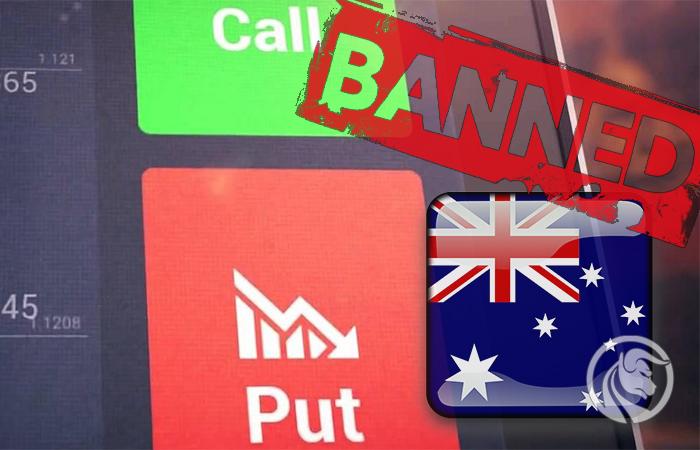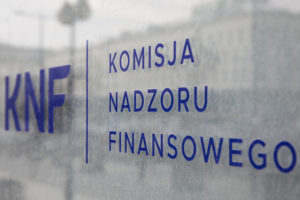Binary options banned in Australia from May 3, 2021
Retail buyers will not be able to anymore "invest" w binary options - this is the result of a ban on the Australian financial regulator ASIC. About 80% of clients were losing, and in one year brokers earned up to USD 500 million on it. In Europe, such the restrictions apply from July 1, 2018.
Not so long ago Australia offered Forex and CFD traders to use almost unlimited leverage, but those possibilities have been limited to a leverage of 30: 1 for major currency pairs and even lower for the other instruments. It is almost a copy of the guidelines in force in the European Union and Great Britain for three years. It is designed to protect mainly inexperienced retail clients from large losses and too quick account reset.
Now ASIC took the next step and banned the sale of binary options to all retail clients (official announcement here). Reason? Of course the same as in other countries around the world. It turned out that Australian traders lose approximately $ 500 million annually to binary options brokers. 4 out of 5 investors lose money when trading this product.
The ban will come into effect on May 3, 2021. Formally, it is only so far "Temporary ban" for 18 months, but the previous restrictions were formulated in the same way, and then they were introduced permanently, explaining that the trial period was successful and they can work permanently.
Check it out: Australian companies - an interesting idea for portfolio diversification
Research: 80% of clients lose on binary options
ASIC has researched the binary options market twice: in 2017 and in 2019. The conclusions are clear: about 80% of retail clients have lost money when trading binary options. The ASIC concluded that binary options are likely to cause cumulative losses for retail clients over time due to the specific characteristics of the product:
- an all-or-nothing payout structure where one of the two possible outcomes of a binary options contract is that the retail client loses their entire investment;
- short duration of the contract (the average duration of a binary options contract traded with one provider was less than six minutes);
- negative expected returns (i.e. the present value of the expected payout for a binary options contract is lower than the initial investment).
- ASIC estimates that retail clients' net losses from binary options trading were around $ 490 million in 2018. Significant changes were then made, but Australian retail clients are estimated to have suffered net losses of over $ 6,7 million in 2019 year.
- In addition to procurement of product interventions, ASIC's efforts to allay binary options concerns and CFDsinclude, but are not limited to:
- enforcement actions aimed at remedying improper conduct, i.e. simply imposing penalties on dishonest brokers,
- public warnings and other statements aimed at identifying threats,
- supervision projects and thematic reviews carried out regularly across sectors,
- inspiring and creating tougher national regulations,
- extensive educational campaigns for retail clients and guidance for issuers of binary options.
What are binary options?
A binary option is an over-the-counter derivative contract concluded by two counterparties - the binary option writer and the client. Payout type "everything or nothing" under a binary options contract is determined by the occurrence or non-occurrence of a specific event within a specified time period. This may include an event related to changes in the price of a financial product or market index (for example, a rise in the price of gold in 30 seconds) or an economic event (such as a central bank's interest rate decision).






















![Forex Club – Tax 9 – Settle tax on a foreign broker [Download the Application] Forex Club - Tax 9](https://forexclub.pl/wp-content/uploads/2024/02/Forex-Club-Podatek-9-184x120.jpg?v=1709046278)
![Trading View platform – solutions tailored to the needs of traders [Review] trading view review](https://forexclub.pl/wp-content/uploads/2024/03/trading-view-recenzja-184x120.jpg?v=1709558918)
![How to connect your FP Markets account to the Trading View platform [Guide] fp markets trading view](https://forexclub.pl/wp-content/uploads/2024/02/fp-markets-trading-view-184x120.jpg?v=1708677291)
![How to invest in ChatGPT and AI? Stocks and ETFs [Guide] how to invest in chatgpt and artificial intelligence](https://forexclub.pl/wp-content/uploads/2023/02/jak-inwestowac-w-chatgpt-i-sztuczna-inteligencje-184x120.jpg?v=1676364263)


![WeWork – the anatomy of the collapse of a company valued at $47 billion [WeWork, part II] wework bankruptcy story](https://forexclub.pl/wp-content/uploads/2024/04/wework-bankructwo-historia-184x120.jpg?v=1711729561)
![Adam Neumann – the man who screwed up Softbank [WeWork, part AND] adam neumann wework](https://forexclub.pl/wp-content/uploads/2024/04/adam-neumann-wework-184x120.jpg?v=1711728724)





![How to transfer shares to another brokerage office [Procedure description] how to transfer shares to another brokerage house](https://forexclub.pl/wp-content/uploads/2024/03/jak-przeniesc-akcje-do-innego-biura-maklerskiego-184x120.jpg?v=1709556924)

![The most common mistakes of a beginner trader - Mr Yogi [VIDEO] Scalping - The most common mistakes of a beginner trader - VIDEO](https://forexclub.pl/wp-content/uploads/2024/03/Scalping-Najczestsze-bledy-poczatkujacego-tradera-VIDEO-184x120.jpg?v=1711601376)
![Learning patience: No position is also a position - Mr Yogi [VIDEO] Scalping - Learning patience - No position is also a position - VIDEO](https://forexclub.pl/wp-content/uploads/2024/03/Scalping-Nauka-cierpliwosci-Brak-pozycji-to-tez-pozycja-VIDEO-184x120.jpg?v=1710999249)
![When to exit a position and how to minimize losses - Mr Yogi [VIDEO] Scalping - When to exit a position and how to minimize losses - VIDEO](https://forexclub.pl/wp-content/uploads/2024/03/Scalping-Kiedy-wyjsc-z-pozycji-i-jak-minimalizowac-straty-VIDEO-184x120.jpg?v=1710336731)

















